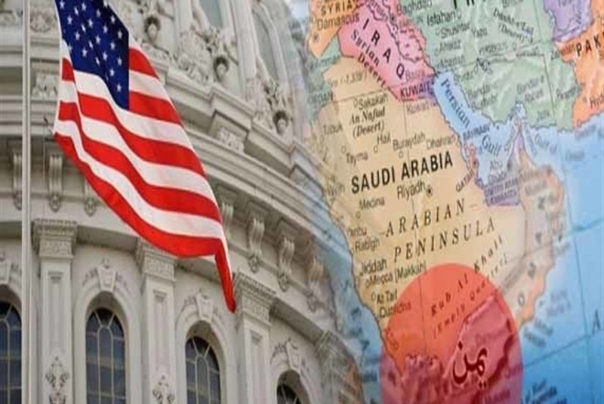BY: Pooya Mirzaei 
NOURNEWS - The criminal aggression of the Arab, American, Hebrew coalition against Yemen, which is in its sixth year this year, as predicted from the beginning, has become a breathtaking swamp for the perpetrators of this crime after the massacre of thousands of Yemenis.
This has not only forced the arrogant Saudi prince to change his tone, but also the Biden government to get rid of it.
Biden government but; It can only play an effective role in ending the devastating war in Yemen if it recognizes, in the first place, the US contribution to the formation and continuation of this crisis.
US diplomatic moves over the Yemeni crisis in recent months, with the slogan of a ceasefire in the country, have failed, and the plan presented by Washington has not been accepted by the National Salvation Government.
The United States is pursuing an end to the Yemeni war in its declared policies, which on the one hand is considered the most important ally of the Saudi regime in this war, and on the other hand, considers the stabilization of the Yemeni revolution against its vital interests.
The unequal war of the Saudi-American coalition against the revolutionary nation of Yemen is aimed at the gross violation of human rights by this coalition, as well as the comprehensive siege of Yemen, as a humanitarian crisis at the forefront of the shortcomings of the current international system.
The new US administration is under pressure from public opinion to end the crisis, given its effective role in initiating and creating it. According to the United Nations, the Yemeni war has caused one of the worst human catastrophes in the world, and in addition to very high civilian casualties, it has left many parts of the country facing severe famine and poverty.
The United States has been a key partner in the Saudi-Emirate anti-Yemeni coalition from the beginning, and US terrorist forces in the region have a close tie to coalition forces, providing intelligence and security support. US forces are also refueling coalition aircraft while providing training to the Saudi military.
During the Riyadh war years, the United States accounted for 25 percent of arms exports to three European countries, and played a key role in improving the country's economy, especially during the Trump era, a role that the Biden administration hopes would continue.
There is ample evidence of US cooperation with Takfiri and terrorist groups in Yemen, which shows that the weakening of the anti-Yemeni coalition front has led Washington to intensify its policy of using Takfiri forces against the National Salvation Government.
Yemeni officials say the United States is directly or indirectly the main source of arms for these groups, particularly ISIS and al-Qaeda in Yemen, and has intelligence ties to them.
However, after the change of government in Washington in recent months, they have called for an end to the war, a position that has been described by the mainstream media as a response to the humanitarian crisis in the war and the sensitivity of public opinion to it.
A closer look at the events of the past months, but, other dimensions of peace !! The latter shows the White House. Among the most important of these dimensions are the advance of the National Salvation Government in the oil province of Ma'rib, the dramatic success of drone and missile strikes on sensitive Saudi centers, and the role that the United States envisions for Yemen's future.
The release of Marib severely weakens the position of the ousted Mansour Hadi government in future negotiations and could even escalate tensions between the government and the southern factions, a situation that could lead to the collapse of the coalition's field talent due to internal conflicts.
Yemeni forces have increased their deterrence capability and can now target their targets deep in enemy territory. The threat posed by this shift in balance is such that Lander King, Biden's special envoy, has expressed his greatest concern for the lives of some 70,000 Americans living in Saudi Arabia.
Washington also hopes to deploy troops in Yemen if a ceasefire is in place. Despite its unique strategic position, it is the only country in the Arabian Peninsula in which the United States does not have a direct military presence.
Yemen is increasingly important, especially in securing energy transfers and ongoing conflicts in the Persian Gulf. The Red Sea and the Bab al-Mandeb Strait, as an alternative route for transporting Persian Gulf oil, justify a direct presence for the United States in the event of a crisis in the Strait of Hormuz.
Washington sees the consolidation of the Yemeni revolution as a major threat to US vital interests in West Asia. For this reason, their stance on this crisis has always been a comprehensive effort to suppress the Yemeni revolution, a goal that seems to be pursued beyond their diplomatic efforts to establish a ceasefire.
During the last 6 years of this bloody and destructive war, the United States has been clearly one of the parties to the conflict and has spared no effort to destroy the Yemeni resistance. But Washington's new approach reflects, above all, the fact that White House officials want to hide their pivotal role in the crisis and continue the policy of full support for Riyadh.

No comments:
Post a Comment